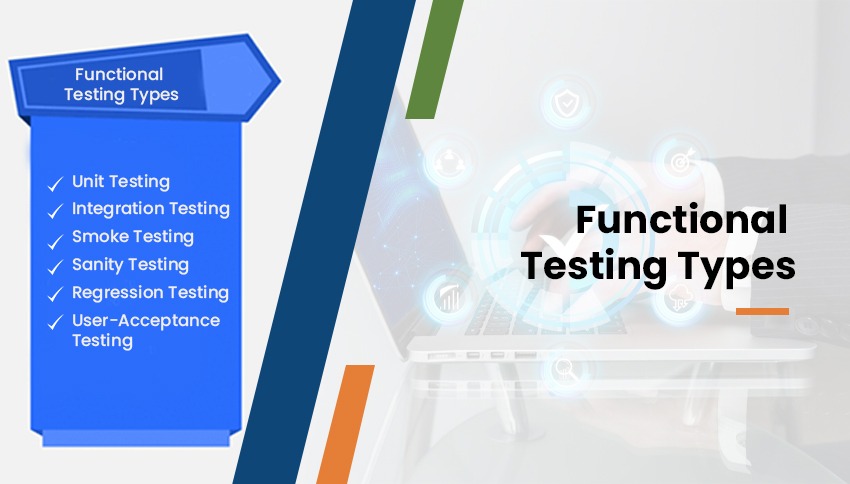- December 29, 2023

The ultimate aim of this article is to furnish the essential understanding of software functional testing. You may be an entrepreneur, a startup company, a professional, or a person interested in software development, It is mandatory to be aware of the importance, benefits, and future of functional testing in software development.
Let’s explore more of it,
What is Functional Testing?
Software functional testing is the process of examining whether the application performs as expected. QA engineers execute the test against the functionality requirements and generate the test results to determine whether the requirement has been passed or failed.
Functional testing is also a form of black-box testing, it examines only the visual performance of an application such as inputs, outputs, and behavior. This testing is mainly focused on evaluating the application in the aspect of user’s perspective.
Importance of Software Functional testing
In this digital age, users are well-versed in experiencing many software applications and they won’t tolerate applications with functionality bugs on their devices. To overcome this and maximize the user experience software functional testing is important. If the key functionality of an application does not work, it will spoil the brand’s reputation among the users. That leads to regression of their market share.
Moreover, this testing process identifies the bugs in the early stages, so that consumption of time and resources are reduced significantly. Overall, executing comprehensive functional testing is integral for organizations to deliver high-quality software, cut costs, and maintain a competitive advantage.
Types of Functional Testing
Unit Testing: In the beginning stage of software development executed by developers validate the assurance that each block of code/unit performs as expected. Also, by providing various values and conditions to check whether it provides the desired output as expected.
Integration Testing: It involves checking the functions of multiple units/ components that are built-in software and validating its end-to-end functions when integrated into large applications.

Smoke Testing: Smoke testing is a kind of sub-test, it involves comprehensive testing of critical functionalities and ensures the software works well enough to move for additional tests. In the process of software development execute it before regression testing.
Sanity Testing: This involves verifying unexpected bugs are occurring when minor changes are applied to the code. If the software fails in sanity testing, it will be rejected on other crucial tests.
Regression Testing: Regression testing is the process of verifying the additional features and code changes are applied later which will not affect the existing functions and features. It is also nothing but re-executing the already executed test cases to confirm that there are no issues with existing features.
User-Acceptance Testing: This is the final testing process before the software application goes to the production environment. It will be performed by the UAT team to ensure that the software response is based on real-world scenarios.
Future of Software Functional Testing
In this digital era, delivering high-quality software is a tedious process in the competitive market. Mostly users don’t retain the bug application on their devices. To avoid this situation and sustain in the market, businesses are ready to adopt the automation process. Identifying the bugs while in the development phase, and non-negotiable quality are the solutions to shape the future. As per the study, by the year 2025, the total e-commerce sales are expected to reach more than $31 trillion globally.
The Power of Automated Functional Testing
To be competitive and drive your business growth, adapting the latest technology brings the potential benefits for your businesses. “Automation” is the enchantment factor that every industry leverages to optimize their business to unleash quality applications. Automation in the testing environment ultimately boosts the application performance and ensures software reliability, and accuracy, and gains end-user satisfaction.
Industry experts are recommended to integrate automation testing into your business which minimizes the overall costs and maximizes productivity. Choose the ideal automation testing tool that accelerates your business and stays ahead of your market competitors.
The Excellence of TestWheel’s Functional Testing
Experience the future of functional testing with TestWheel! Eliminate manual script adjustments and streamline your testing process for optimized software performance. Leverage TestWheel’s cloud-based engineering solution to ensure reliability, accuracy, and customer satisfaction. Propel your business forward in the competitive market with our comprehensive testing solutions. Make the smart choice for success – choose TestWheel today!
